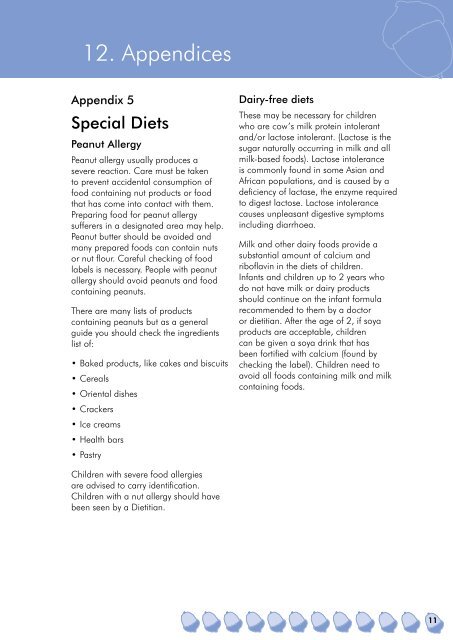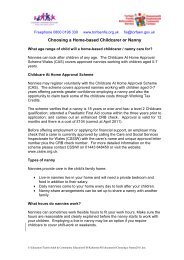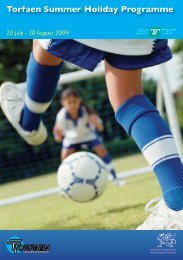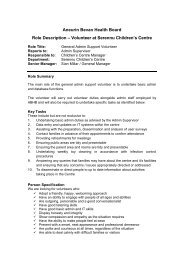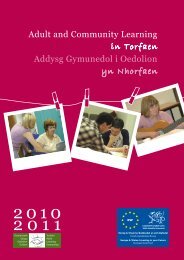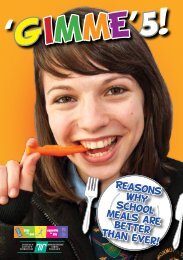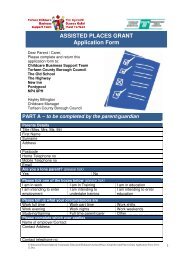Food and Health Guidelines - Torfaen Family Information Service
Food and Health Guidelines - Torfaen Family Information Service
Food and Health Guidelines - Torfaen Family Information Service
Create successful ePaper yourself
Turn your PDF publications into a flip-book with our unique Google optimized e-Paper software.
12. Appendices<br />
Appendix 5<br />
Special Diets<br />
Peanut Allergy<br />
Peanut allergy usually produces a<br />
severe reaction. Care must be taken<br />
to prevent accidental consumption of<br />
food containing nut products or food<br />
that has come into contact with them.<br />
Preparing food for peanut allergy<br />
sufferers in a designated area may help.<br />
Peanut butter should be avoided <strong>and</strong><br />
many prepared foods can contain nuts<br />
or nut flour. Careful checking of food<br />
labels is necessary. People with peanut<br />
allergy should avoid peanuts <strong>and</strong> food<br />
containing peanuts.<br />
There are many lists of products<br />
containing peanuts but as a general<br />
guide you should check the ingredients<br />
list of:<br />
• Baked products, like cakes <strong>and</strong> biscuits<br />
• Cereals<br />
• Oriental dishes<br />
• Crackers<br />
• Ice creams<br />
• <strong>Health</strong> bars<br />
• Pastry<br />
Dairy-free diets<br />
These may be necessary for children<br />
who are cow’s milk protein intolerant<br />
<strong>and</strong>/or lactose intolerant. (Lactose is the<br />
sugar naturally occurring in milk <strong>and</strong> all<br />
milk-based foods). Lactose intolerance<br />
is commonly found in some Asian <strong>and</strong><br />
African populations, <strong>and</strong> is caused by a<br />
deficiency of lactase, the enzyme required<br />
to digest lactose. Lactose intolerance<br />
causes unpleasant digestive symptoms<br />
including diarrhoea.<br />
Milk <strong>and</strong> other dairy foods provide a<br />
substantial amount of calcium <strong>and</strong><br />
riboflavin in the diets of children.<br />
Infants <strong>and</strong> children up to 2 years who<br />
do not have milk or dairy products<br />
should continue on the infant formula<br />
recommended to them by a doctor<br />
or dietitian. After the age of 2, if soya<br />
products are acceptable, children<br />
can be given a soya drink that has<br />
been fortified with calcium (found by<br />
checking the label). Children need to<br />
avoid all foods containing milk <strong>and</strong> milk<br />
containing foods.<br />
Children with severe food allergies<br />
are advised to carry identification.<br />
Children with a nut allergy should have<br />
been seen by a Dietitian.<br />
11


